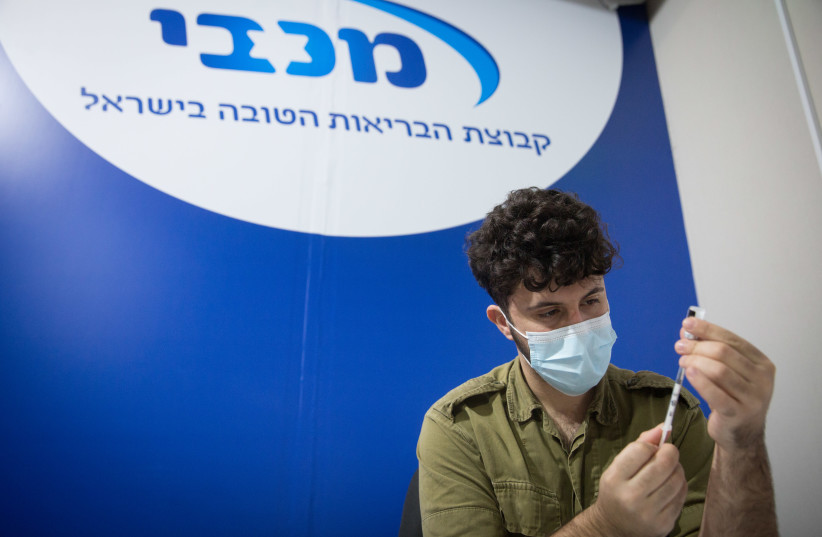Global chip-maker Intel raised eyebrows around the world on Wednesday when it announced it will give a $250 bonus to every vaccinated employee, including Intel’s 14,000 employees in Israel, in order to incentivize them to take precautions against corona.
Israeli tech leaders observed the gesture approvingly, but were split on whether Israeli companies should take a similar approach.
Intel said that all salaried employees would receive the bonus, including those who had already been vaccinated. Hourly workers would be given $100 in vouchers. Employees will also be given off four hours to get vaccinated, if needed.
Intel’s approach offering a carrot to non-vaccinated workers instead of a stick is unusual. Many Israeli and US tech firms have required proof of vaccination for employees returning to the office, a move that Intel said it will not take.
Observers had mixed thoughts on whether the company’s approach is relevant in Israel.
“I haven’t seen this sort of approach at all here, and others with whom I spoke completely agreed,” said Jeremy Lustman, head of global law firm DLA Piper’s Israel office. “The dominant sentiment here is to vaccinate. Thankfully, our vaccination rates are high, and there is a general sentiment in the market that those choosing not to vaccinate should not be ‘rewarded’ for doing so.”
Liat Zadikov, VP of human resources at genetic research and biotherapeutics company Emendo, responded to the measure with some cynicism.
“Our employees are well aware of the mechanism of action of the mRNA vaccine, so we did not have to incentivize them to get vaccinated,” she said.

“All of our employees, without exception, are vaccinated, some of them in the third batch. For us, it was not even a question. It is a pity to hear that such incentives should be given to employees, without them understanding the purpose and importance of the vaccine independently. On the other hand, it is good to know that companies set a very clear goal that will lead to a proper work routine and a safe environment for employees.”
Others spoke in favor of the decision.
“We support the decision to motivate and provide an incentive to workers to take the COVID-19 vaccine,” said Reuben Braham, vice president of marketing at cybersecurity firm CyberInt. “Currently the entire staff and workers of our company in Israel have taken the vaccine, and still wear masks in the office as per government requirements. As a company, we want to end this pandemic.”
Eytan Pardo-Roques, business development manager at Sarona Partners, said he expects more companies to follow Intel’s lead.
“We certainly see such a trend developing in Israel, because we see people not getting vaccinated,” he said. “We also see efforts by the state to encourage people to come out and get the shot by all means. This way, more and more local and international companies will encourage people to get vaccinated, whether it’s with days off or grants. The companies understand that it’s a strategic step, because an employee who goes into isolation or gets sick is less valuable.”
Work communications company Connecteam advocates a policy of relying on the part of employees, rather than incentives, said the company’s COO, Yuval Magid.
“We give a lot of weight to the personal responsibility of our employees in dealing with the corona,” Magid said. “Throughout the corona period, we have expressed confidence in our employees and asked them to act with discretion when it comes to getting to work and personal conduct. It is good to see that most employees come to the office on a regular basis, and on the other hand, they know to stay at home when exposed to the sick or do not feel well. The mutual responsibility they take is a point of pride for us.”
